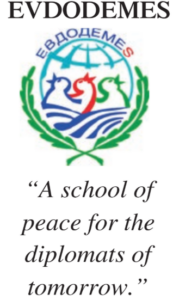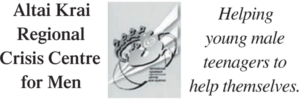ГДЗ по английскому языку 10 класс упражнение - 1 р. 5
Are schools in Russia all the same? What kind of unusual schools are there in the country?
Spotlight on Russia looks at three atypical schools.

The diplomats of tomorrow

On 1st June 2006, Children’s Day, the ‘European House for the International Co-operation of Children’ (Evdodemes) announced the establishment of three residential schools in the Gelendzhik, Moscow and Leningrad oblasts.
Based on the idea of ‘children’s diplomacy’, these schools hope to unite nations and peoples. The idea behind Evdodemes is that the children of today are the key to a peaceful future. While depressing reports of wars are a common feature on our TV screens and fill our newspaper columns, the schools’ aim is to educate children in a culture of peace and harmony.
Apart from traditional school subjects, the students of these schools will attend classes in negotiation and communication skills, as well as in the art of diplomacy and etiquette. They will also learn about the culture and history of other countries. All this will help promote the main aim of Evdodemes, which is to help children make friends with other children from different religious, linguistic and racial backgrounds.
_________________________________________________________________________
A special course for young men
In the Siberian city of Barnaul, a special programme has begun. Set up by the Altai Krai Regional Crisis Centre for Men and supported by the annual Man-Ecology-Health Exhibition, this new course has devised a number of ways to help male teenagers with problems.
Participants learn how to assert and respect themselves. They go on camping trips, which are designed to improve their health. These trips include mountain hiking and campfire singsongs. Back in the city, informal meetings called ‘evening couch parties’ allow teenagers to sit around and talk in a relaxed atmosphere. All of these activities help them to realise who they are and what makes them special.
_________________________________________________________________________
A school for everyone
On Horoshevskoye Avenue in Moscow,a new type of school will open shortly. What makes this school unique is the fact that it is not only intended for students, but it is designed for the needs of local citizens as well. Therefore the school will have an educational and a social purpose.
During the day, students will make use of the school’s gyms, Internet facilities and concert halls, while in the evening these will be open to local residents of all ages.
The school will be equipped with the latest technology, and every classroom will have computers and widescreen digital monitors.
How could your school be improved? What’s your idea of a perfect school? Send Spotlight on Russia your thoughts and ideas.
- In pairs, discuss which of the schools above you would like to attend.
- Collect information about an extraordinary school in your area and write an article about it.
Are schools in Russia all the same?
Schools in Russia are not all the same. There is a variety of types and levels of education across the country. The education system is divided into stages: primary (ages 6-7 to 10), basic general (grades 5-9), and secondary general education (grades 10-11). Education is compulsory for 11 years, and students must pass the Unified State Exam to graduate from secondary school.
Most schools are public and free, but their quality can vary significantly depending on location. Major cities like Moscow and St. Petersburg usually have higher standards and more diverse school options, while rural areas often have fewer choices. There are also many private schools, especially in large cities, which offer higher-quality education but charge high fees.
Are schools in Russia all the same?
In addition to regular schools, Russia has some unusual or specialized schools:
- Lyceums and Gymnasiums offer advanced programs with a focus on particular subjects like sciences, languages, or humanities, providing deeper knowledge than regular schools.
- International schools can be found mainly in big cities, these schools follow foreign curricula (British, American, French, etc.) and cater to expats or Russians seeking international education.
- After basic education, students can attend vocational schools to learn specific trades or professions, combining practical training with general education.
- Inclusive schools accommodate children with disabilities, providing adapted education and support.
How could your school be improved? What’s your idea of a perfect school?
- more focus on practical skills like communication and teamwork, similar to the diplomacy schools
- spaces open to the community to encourage interaction and lifelong learning
- programs that support students’ mental health and personal development, like the special course for young men
- access to modern technology to prepare students for the future
In pairs, discuss which of the schools above you would like to attend.
Among these schools, I would most like to attend the Diplomats of Tomorrow school because I am interested in learning about different cultures, improving communication skills, and contributing to peace in the world. It sounds inspiring to study diplomacy and make friends with children from diverse backgrounds.
Moscow’s Innovative School of the Future “Skolka”
In November 2024, Moscow opened a remarkable new school at the Skolkovo Innovation Center, called Skolka. This school is unique not only in Moscow but in all of Russia. It combines modern architecture with advanced teaching methods focused on practical, real-life learning.
Skolka can accommodate 825 students and offers a spacious, bright, and beautiful environment. What makes it truly special is its practice-oriented approach: students don’t just study abstract theories but learn by applying knowledge to real situations at home, in the city, or in everyday life. This helps prepare them better for the future.
The school was built through a public-private partnership, showing a new way of developing educational facilities in Russia. It is equipped with the latest technology and designed to inspire creativity, critical thinking, and problem-solving skills.